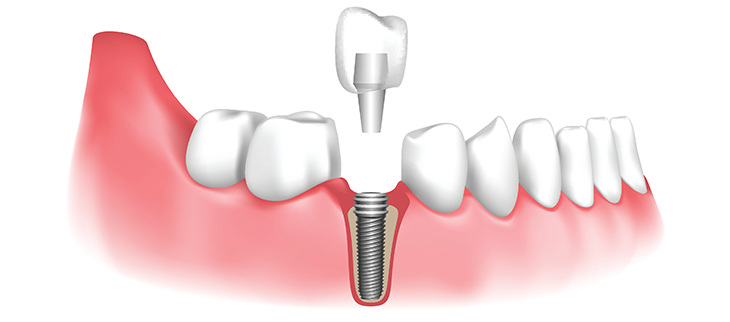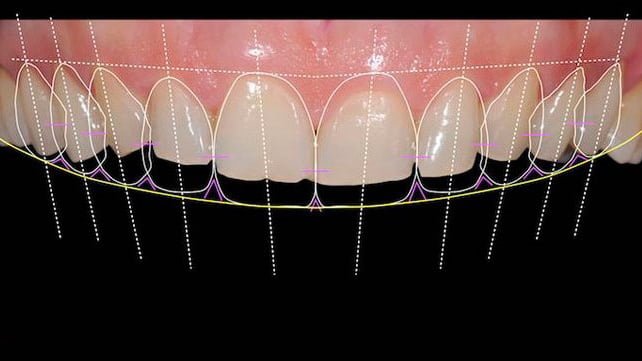Are veneers permanent? This is a common question among patients considering dental implants. In this article, we will explore the longevity of veneers and discuss important factors to consider before getting them. Understanding the durability and maintenance of veneers is crucial for making an informed decision about your oral health and smile transformation. So, let’s dive in!
Are Veneers Permanent with Dental Implants: Debunking the Myths
Veneers are not permanent with dental implants. This is a common myth that needs to be debunked. Veneers are thin porcelain shells that are bonded to the front surface of natural teeth to improve their appearance. They are not directly attached to dental implants.
Dental implants, on the other hand, are titanium posts that are surgically placed into the jawbone to replace missing teeth roots. They serve as a strong foundation for the placement of dental crowns, bridges, or dentures. Implants are designed to be a long-term solution for tooth loss and can last a lifetime with proper care.
While veneers can be used in combination with dental implants to enhance the aesthetics of the final restoration, they are separate components and have different lifespans. Veneers typically last between 10 to 15 years before they may need to be replaced due to wear or damage. On the other hand, dental implants have a high success rate and can last for many decades when properly maintained.
It is important to understand that the lifespan of veneers is not determined by the presence or absence of dental implants. Factors such as oral hygiene practices, grinding or clenching habits, and regular dental visits all play a role in determining the longevity of veneers.
In conclusion, while veneers can be used to complement dental implants, they are not permanent fixtures with implants. Veneers are separate restorations that have their own lifespan, while dental implants provide a stable foundation for long-term tooth replacement.
Can veneers harm natural teeth?
Veneers are a cosmetic dental solution used to improve the appearance of teeth. They are thin, custom-made shells made of porcelain or composite resin that are bonded to the front surface of the teeth. When it comes to dental implants, veneers do not directly harm natural teeth.
However, it’s important to note that preparation for veneers does involve removing a small amount of enamel from the surface of the teeth. This process is irreversible and can result in some sensitivity. Additionally, if the veneers are not properly fitted or maintained, they can cause tooth decay or gum inflammation over time.
It is crucial to consult with a qualified and experienced dentist who will assess the condition of your natural teeth and determine whether veneers are a suitable option for you. They will also provide guidance on proper oral hygiene and maintenance to ensure the longevity of both your veneers and dental implants.
What is the effect on the teeth beneath veneers?
Dental implants do not have any direct effect on the teeth beneath veneers. Veneers are thin shells made of porcelain or composite resin that are bonded to the front surface of the teeth to improve their appearance. They are typically used to cover teeth with cosmetic issues such as discoloration, chips, or gaps.
When placing dental implants, the implant post is inserted into the jawbone to replace a missing tooth root. It does not interact with the natural teeth or the veneers in any way. The implant provides support for a dental crown, bridge, or denture, which are prosthetic teeth that are attached to the implant. These prosthetic teeth are separate from the natural teeth and veneers.
However, it is important to ensure that the placement of dental implants does not interfere with the positioning or stability of the existing veneers. If a dental implant is planned in an area where a veneer already exists, careful evaluation and planning are necessary to ensure proper aesthetics and functionality. This may involve adjusting the position or design of the veneers to accommodate the dental implant.
In summary, while dental implants themselves do not have a direct effect on the teeth beneath veneers, they require careful consideration and planning to ensure optimal results when coexisting with veneers.
What is the lifespan of veneers?
The lifespan of veneers can vary depending on various factors, including the individual’s oral hygiene practices, habits (such as teeth grinding or biting on hard objects), and the quality of the veneers themselves. However, on average, veneers can last between 10 and 15 years. **It is important to note that they may need replacement or repair at some point during this timeframe.** Regular dental check-ups and cleanings can help ensure the longevity of veneers by detecting any issues early on. **Additionally, maintaining good oral hygiene, avoiding habits that can damage the veneers, and following the dentist’s recommendations for care can also contribute to their lifespan.** If a veneer becomes damaged or loose, it is essential to visit a dentist promptly for evaluation and potential treatment.
Is it possible to remove veneers once they have been placed?
No, veneers cannot be removed once they have been placed. Veneers are a permanent cosmetic dental treatment that involves bonding thin shells of porcelain or composite material to the front surface of your teeth. The process usually requires some preparation of the natural teeth, such as slight enamel removal, to ensure a proper fit and appearance. Removing veneers would likely result in damage to the underlying teeth and might require alternative treatments, such as crowns, to restore their appearance and function.
Frequent Questions
How long do dental implants typically last compared to veneers?
Dental implants typically last much longer than veneers. While the lifespan of dental implants can vary depending on individual factors such as oral hygiene, overall health, and habits like smoking, they are designed to be a long-term solution for missing teeth. With proper care, dental implants can last for decades or even a lifetime.
On the other hand, veneers are thin shells made of porcelain or composite resin that are bonded to the front surface of the teeth to improve their appearance. While veneers are durable and can last for many years, they generally have a shorter lifespan compared to dental implants.
It’s important to note that both dental implants and veneers require regular dental care and maintenance to ensure their longevity. Regular dental check-ups, proper oral hygiene practices, and avoiding habits like teeth grinding can help extend the lifespan of both dental implants and veneers. However, in terms of durability and lifespan, dental implants are generally considered to be the more long-lasting option.
Can veneers be placed on dental implants to improve their aesthetics?
No, veneers cannot be placed on dental implants to improve their aesthetics. Veneers are thin porcelain shells that are custom-made to cover the front surface of natural teeth. They are designed to improve the appearance of teeth that are discolored, chipped, or misaligned. However, dental implants are artificial tooth roots that are surgically placed in the jawbone to support a dental crown, bridge, or denture. Since implants are made of titanium and are not covered by enamel like natural teeth, veneers cannot be bonded to them. Instead, the crown or prosthetic that attaches to the implant is typically customized to match the color and shape of the patient’s natural teeth for a seamless integration and improved aesthetics.
Are there any alternatives to veneers that are more permanent, such as dental crowns, for dental implant restoration?
Dental implants are a long-lasting and effective solution for replacing missing teeth. When it comes to restoring dental implants, there are several options available, including veneers and dental crowns.
Veneers are thin shells made of porcelain or composite resin that are bonded to the front surface of your teeth. They are an excellent choice for improving the appearance of your smile and can be used to correct issues such as discoloration, chips, and gaps. However, veneers are not considered a permanent solution and may need to be replaced after around 10-15 years, depending on proper maintenance and oral hygiene.
Dental crowns, on the other hand, are a more permanent option for dental implant restoration. Crowns are custom-made caps that cover the entire surface of a damaged tooth or dental implant. They provide strength, stability, and natural-looking results. Dental crowns are typically made from materials such as porcelain, porcelain fused to metal, or zirconia, which are highly durable and resistant to staining. With proper care, dental crowns can last for many years, potentially even a lifetime.
It’s important to consult with your dentist to determine the best option for your specific situation. They will evaluate factors such as your oral health, the location of the dental implant, and your aesthetic goals to recommend the most suitable restoration method.
In conclusion, veneers can be an effective and long-lasting solution for improving the appearance of teeth. While they are not considered permanent, with proper care and maintenance, they can last for many years. It is important to note that veneers may need to be replaced at some point in the future due to normal wear and tear or other factors. However, when compared to other cosmetic dental options, such as Dental Implants, veneers are generally less invasive and require less time for placement and recovery. If you are considering veneers, it is crucial to consult with a qualified dentist who can assess your specific needs and provide personalized guidance. Whether you choose veneers or Dental Implants, both options can significantly enhance your smile and boost your confidence.



